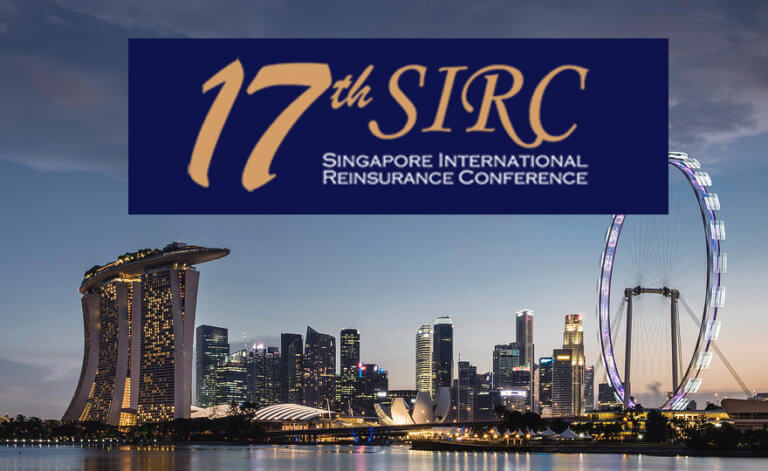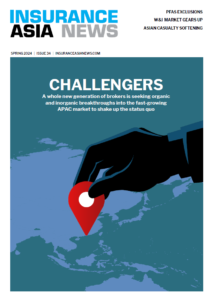SIRC 2021: Lloyd’s chair calls for action on sustainability
November 15 2021 by Andrew Tjaardstra
Lloyd’s Asia Renewable Energy Consortium is an example of how the market can help make an impact on climate change, according to Lloyd’s chairman Bruce Carnegie-Brown.
The consortium which covers solar energy, wind farms and battery technology is backed by Markel, Chaucer and Munich Re.
“We need plans to address climate change. It presents a unique conundrum and defies categorisation. The last five years have been the hottest on record while there has been a five-fold increase in climate disasters since 1950. There could be a 12 inches rise in sea levels by 2040, from which around 1.6 billion people who live in Asia are at risk,” said Carnegie-Brown in a SIRC keynote address on November 15.
In addition, rising sea levels in South-East Asia could ruin crops and lead to the loss of lives and livelihoods. He noted that tackling climate change is a “moral” and “financial” issue and added that Lloyd’s chief executive John Neal met Fiji’s prime minister at COP26. Salt water from rising sea levels is causing the country around US$50 million of damage a year and a storm in 2016 hit approximately 30% of Fiji’s GDP.
“We believe in an urgent and orderly transition to net zero and that any plans need to be fully integrated,” Carnegie-Brown said.
Lloyd’s also launched the Lloyd’s Sustainable Markets Initiative Insurance Taskforce (ITF) earlier this year.
Lloyd’s iconic London building is set to see net zero carbon emissions by 2025, while its central fund and underwriting position are set to be net zero by 2050. Lloyd’s will also stop investments in thermal coal, tar sands and high emitting energy sources from the beginning of next year with a reporting regime to be launched in 2022.
Carnegie-Brown said the industry needs to build a resilience framework to blend public and private partnerships with insurance. Innovative technologies, such as an earthquake policy in New Zealand start-up called Bounce to pay out for claims within five days, have a key role to play, he added.
“We want to work with all our partners but it needs a shared belief. Singapore’s innovation, knowledge and expertise is key. Incubation acts like a battery that generates power that can be shared elsewhere. Collaboration is also key,” he said.
Lloyd’s is also working with the Cambridge Center for Risk Studies to look at risks such as cyber attacks, geopolitical, climate risk and solar flares.
“The Asia Pacific region contributes around 11% of Lloyd’s global premium and we wrote US$5 billion last year. The region is the undisputed growth engine of the non-life market with over US$500 billion of cover placed last year. It is growing at the fast rate as the region’s middle class grow,” said Carnegie-Brown.
He added that Singapore has long been a gateway for Lloyd’s Asia operations.
-
FM Global | Resilience: No longer a choice
As climate disclosure becomes mandatory and new risks emerge from natural hazards, understanding the tools that are available to build resilience is more important than ever.

